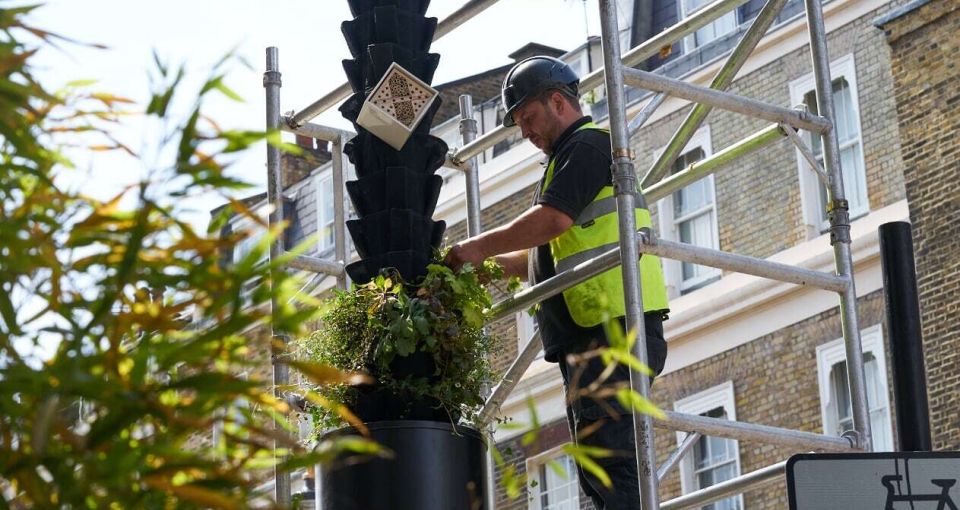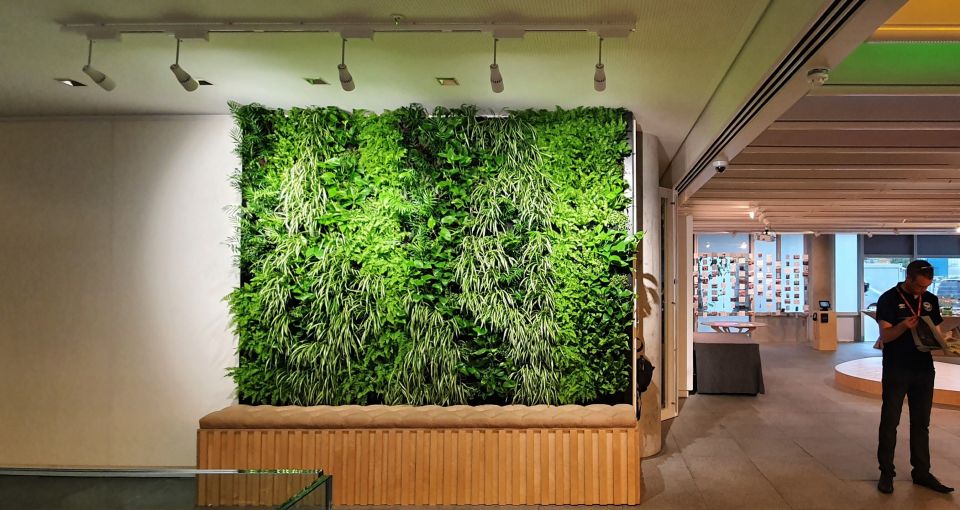- Home
- Living Walls
- Landscaping
- Our Products
- Our Services
- Case Studies
- About Us
- Learn
Three separate commissions demonstrate benefits of regreening urban environments
In his inspiring speech at COP26, Sir David Attenborough stated, “Wherever we restore the wild, it will help capture carbon and bring back balance to our planet.” In a nutshell he encapsulated the essence of what we’re about at Scotscape.
Biodiversity displacement is as big a threat to human existence as climate change. And biodiversity replacement can play a major role in capturing carbon. So how fitting that we are in Glasgow at the SEC ourselves, working on not one but three installations at COP26, commissioned by three separate clients, all demonstrating the benefits of bringing biodiversity to the urban environment.
The first is top secret, not to be spoken about until after the event (watch this space for details of that one).
The second is an installation by artist Es Devlin, in collaboration with forest architect Philip Jaffa of Scape Design, called ‘Conference of the Trees’. Commissioned by The New York Times for its nine-day Climate Hub at COP26, it comprises 197 trees and plants representing the 197 countries that have ratified the United Nations Framework Convention on Climate Change.
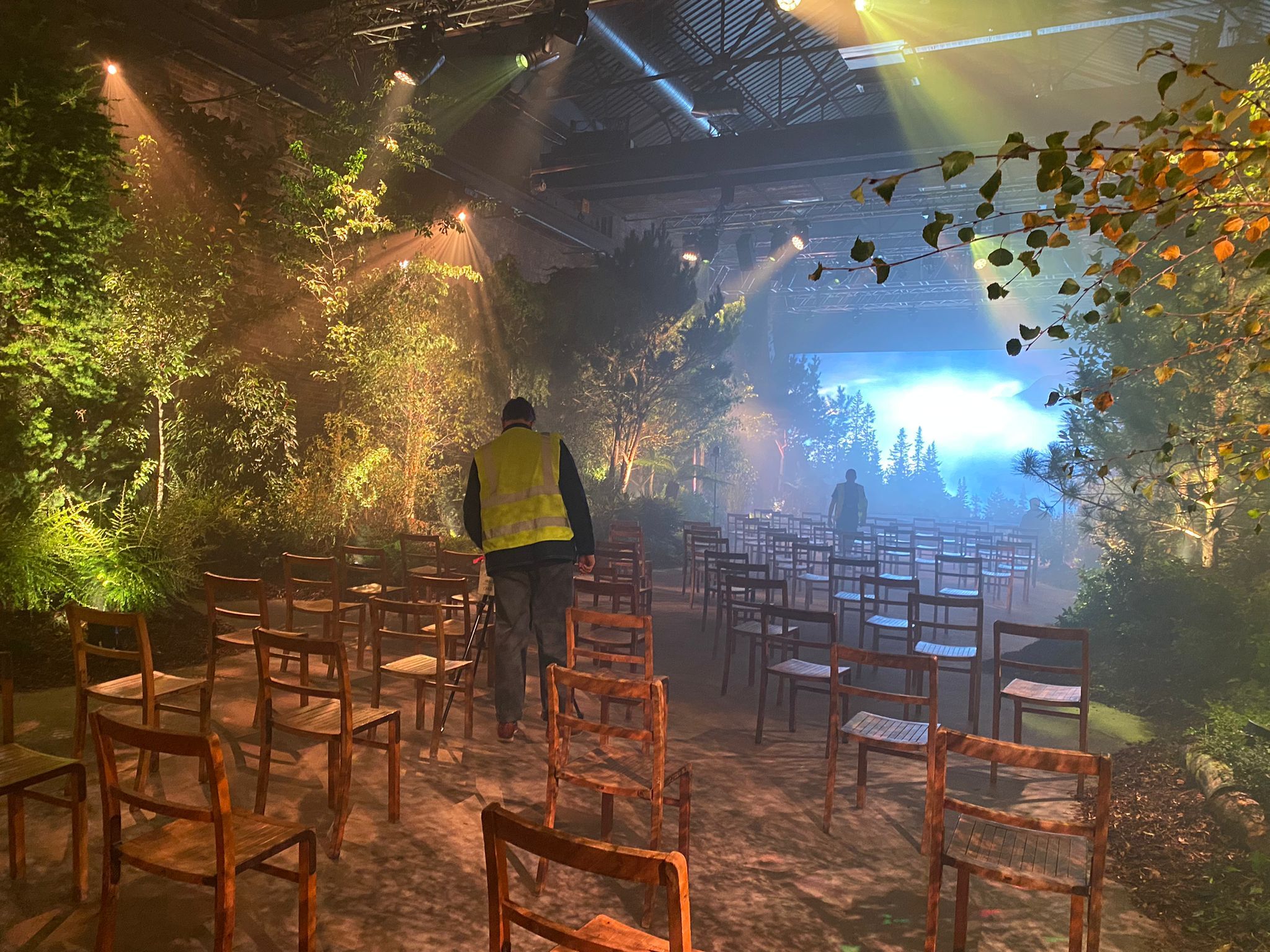
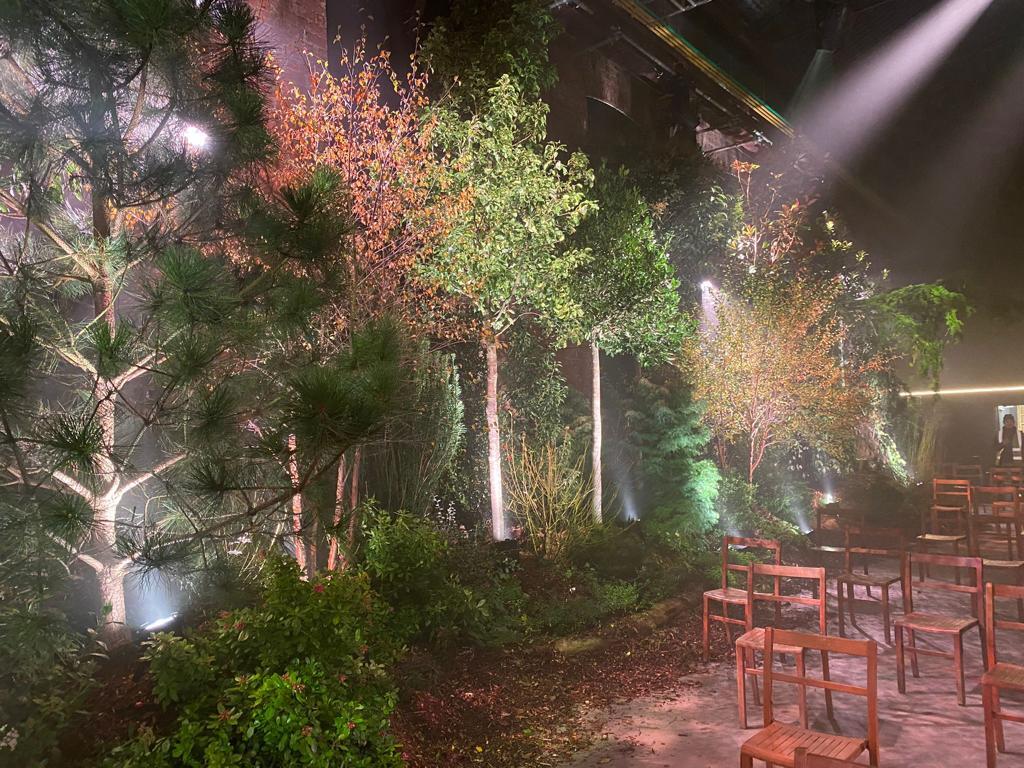
The third installation is for Nick Henry’s Climate Action Innovation Zone, which features a number of companies exhibiting their innovations to battle climate change. We have created a forest right by the entrance drawing visitors into the zone, a living wall constructed to our own design and a small pocket of trees inside the Innovation Zone.
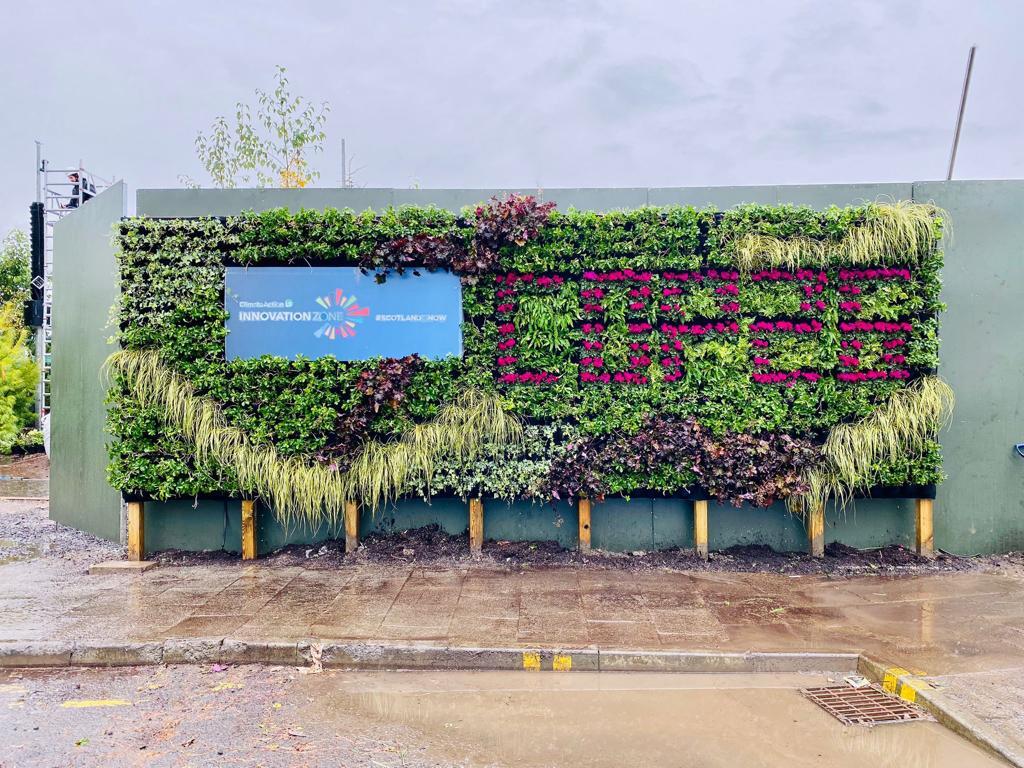
Our LivingPillars®, which use existing street furniture, such as lampposts, on which to grow plants and encourage insects and birds, draws a lot of interest. The LivingPillarTM does not only add biodiversity value but also monitors environmental factors, such as temperature and air quality, and is run entirely on solar power.
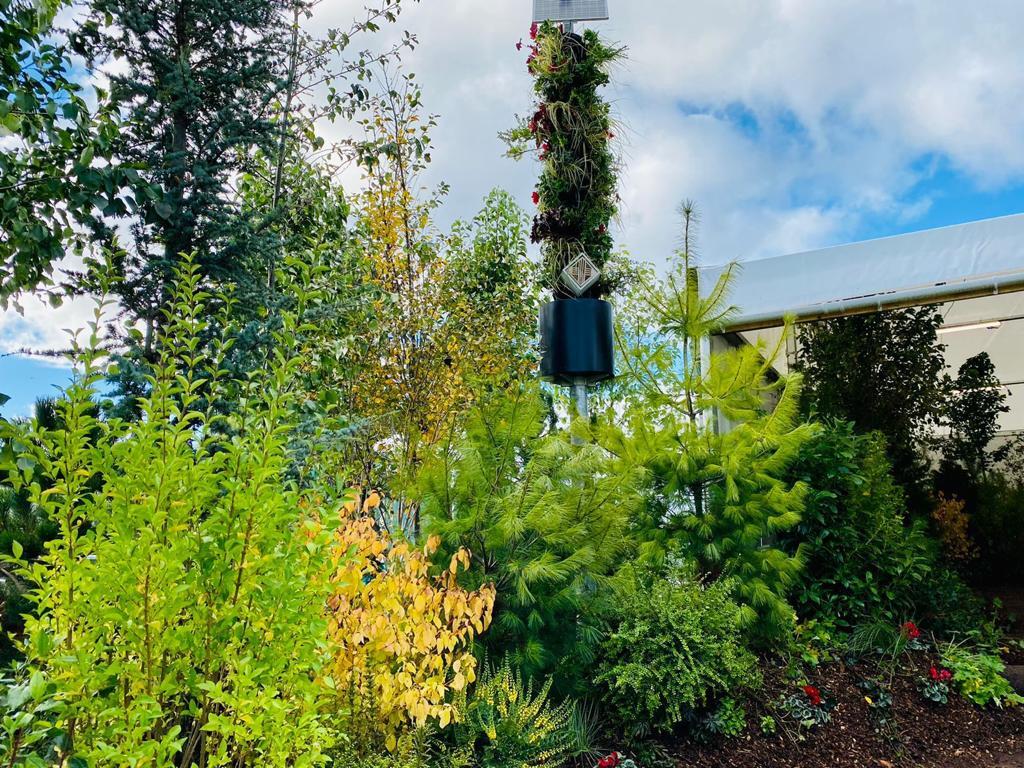
While planning for COP26 began three months ahead, tree selection had to be carried out much nearer the date in October. One of the challenges was choosing trees that were suited to the Scottish climate and still in leaf in early November. We brought a mixture of pines, deciduous trees and sift underplanting together to create a real forest styled theme with each tree and shrub adding biodiversity value. The trees for Es Devlin’s installation are being donated by The New York Times as part of a community legacy native public garden to be established in Glasgow, so they had to be selected with that in mind. Working with Phil Jaffa, we selected some fir and holly but also a number of deciduous trees in beautiful autumn colour.
Other challenges included the high level of security, horrendous weather and the threat of protesters closing roads around the SEC. To avoid any hold-ups, we had to get the stock in two weeks early and keep it safe inside the venue. The installations themselves had to be completed in a just couple of days. In addition to the extremely tight timeframes we had to work as a team around the logistics of tree weight.
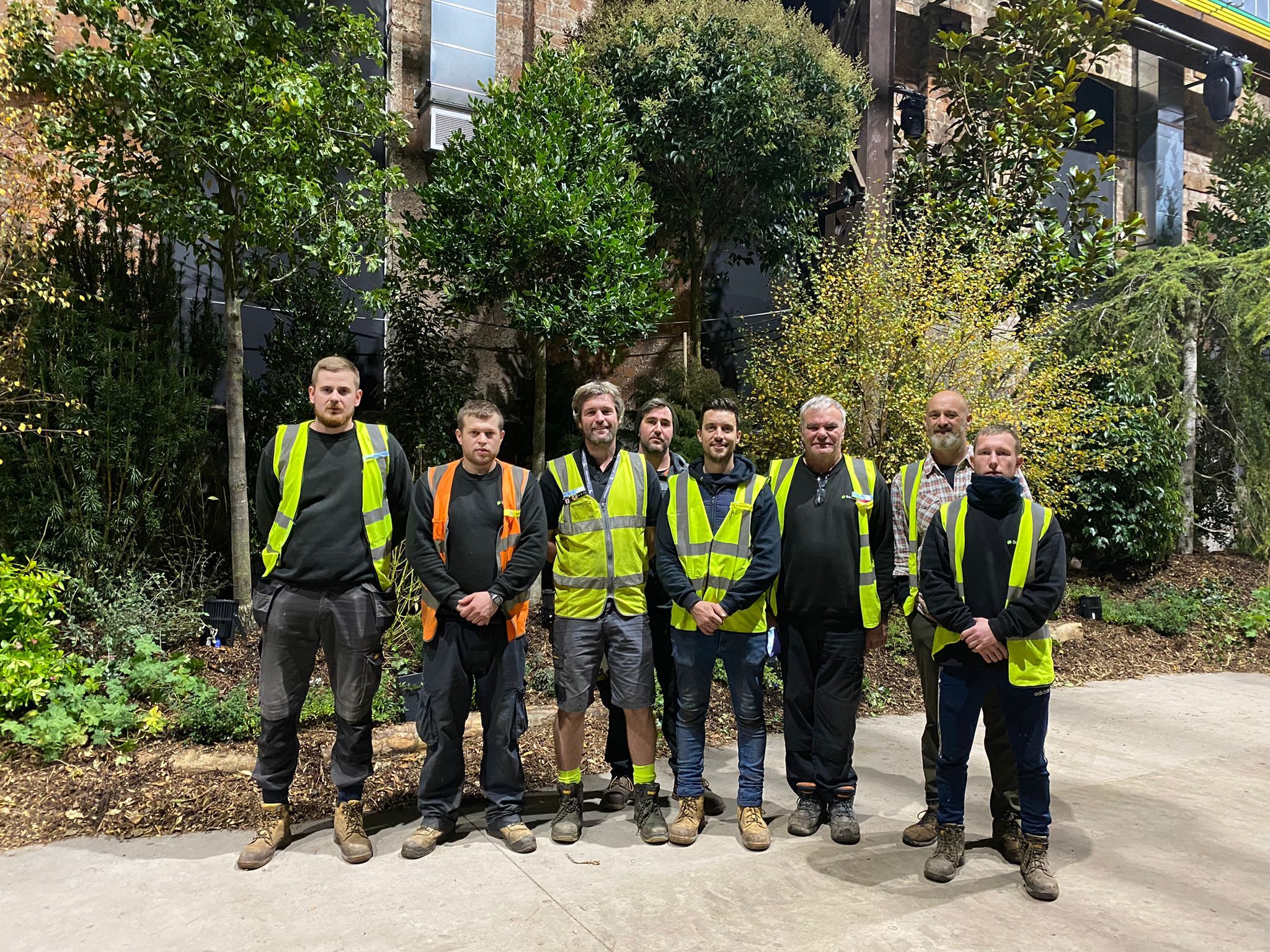
Every plant we put in at COP26 will be re-homed in or around Glasgow after the event finishes. As a proud Scot myself, it’s rewarding to play a part in helping to increase biodiversity in the Scottish city and show how we can live in a world that balances nature with modern technology to keep the planet from overheating.
Angus Cunningham
Founder and CEO, Scotscape
Offices
Ditton Nurseries
Summerfield Lane
London, KT6 5DZ
Useful Links
© Copyright
Scotscape.
All rights reserverd.
